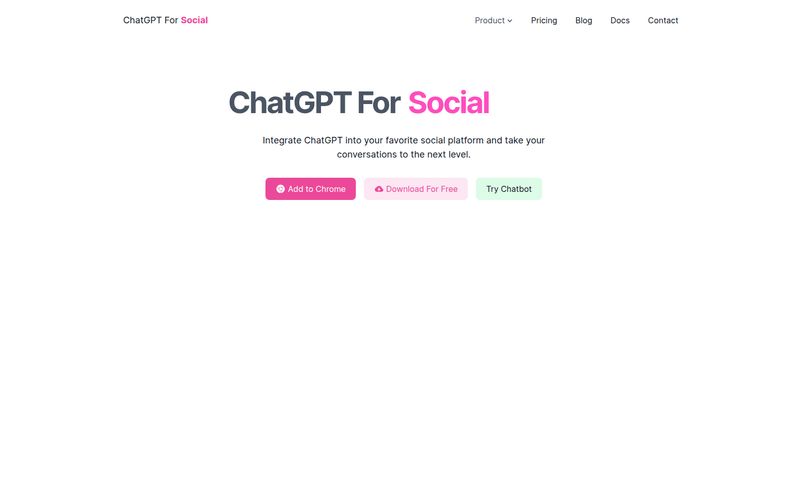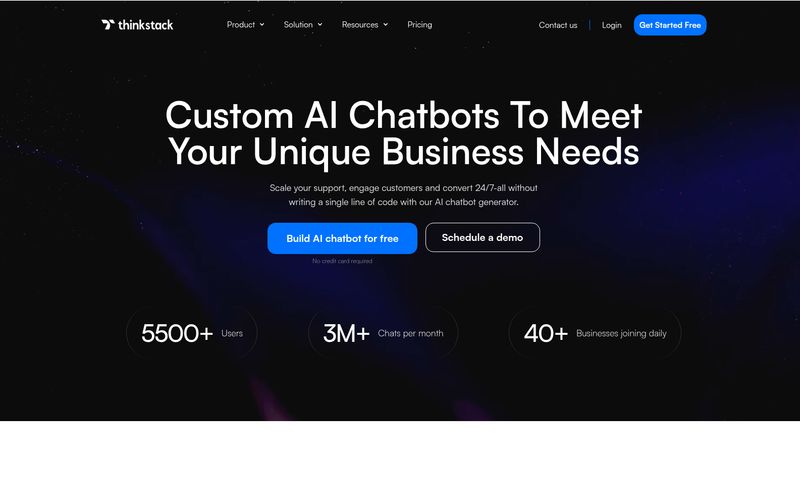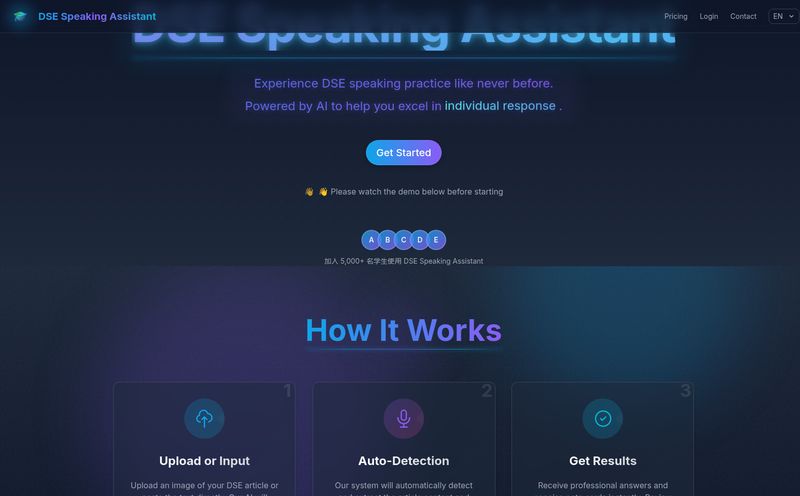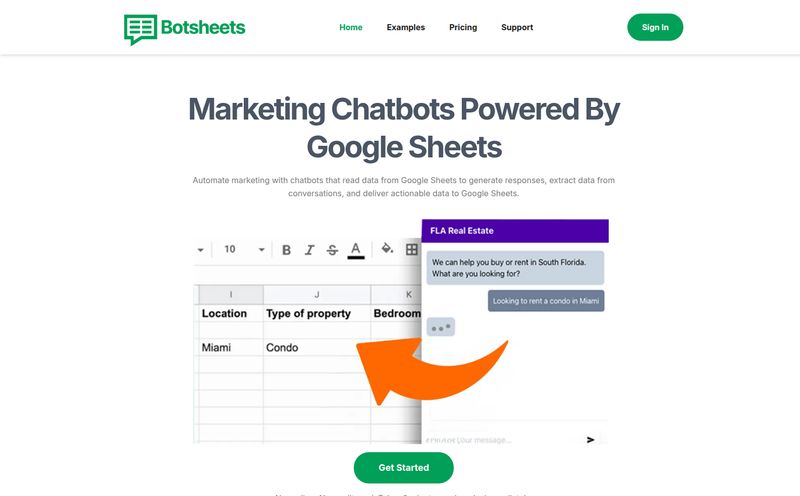The academic research process is a mess. A beautiful, chaotic, caffeine-fueled mess, but a mess nonetheless. You have 37 browser tabs open, one for your search engine, a few for PDFs you might read later, another for your reference manager, and one for the actual document you're supposed to be writing. It’s a digital juggling act, and one wrong click can send the whole thing tumbling down.
I've been in the SEO and traffic game for years, and I've seen countless 'productivity' tools promise to solve everything. Most of them just add another tab to the pile. So, when I first heard about OmniScholar, an all-in-one AI-powered research platform, my skepticism meter was twitching. But after digging in, I have to admit… they might be onto something here. It’s not just another shiny object; it feels like it was designed by someone who has actually felt the pain of writing a literature review at 2 AM.

Visit OmniScholar
So What is OmniScholar, Really?
In the simplest terms, OmniScholar aims to be your entire research workflow, just… in one place. Imagine if Google Scholar, Zotero, and your word processor had a very intelligent baby. That's kind of the vibe. The official line is that it’s an “AI-powered research platform streamlining academic workflows from discovery to publication.” And honestly, that’s not far off.
It's built to handle the whole lifecycle of a research project—from finding sources and managing your citations to writing the paper and keeping track of your deadlines. For anyone who has ever manually reformatted a bibliography from APA to Chicago style, you know how much of a godsend that can be. It’s designed to be a central hub, a command center for your academic brain.
Breaking Down the OmniScholar Toolkit
A platform is only as good as its features, right? Here’s a look at what OmniScholar brings to the table.
The Unified Search Engine: Your Personal Academic Library
Instead of hopping over to a separate search portal, you can do it right inside OmniScholar. It pulls from a massive academic database, so you’re not missing out on quality sources. The real magic, though, is how it integrates. Find a paper you like? One click and it’s in your library, citation ready. No more downloading a PDF, uploading it to another program, and then trying to find it again a week later. It just… works.
AI-Powered Reference Management: Goodbye, Citation Hell
This is a big one. Managing references is probably the most tedious part of academic writing. OmniScholar automates a huge chunk of this. It helps you build your library, format citations in whatever style your heart (or your professor) desires, and generates bibliographies automatically. The AI component helps by suggesting relevant papers based on what you’ve already saved, acting like a little research assistant that’s constantly working in the background. It's a huge time-saver and frankly, a life-saver for any grad student staring down a dissertation deadline.
The Document Editor and AI Research Agents
The built-in document editor is clean and intuitive, but the AI Research Agents are the main event. Think of them as co-pilots. You can ask an agent to summarize a dense paper, help you draft an outline, or even rephrase a clunky paragraph. This isn't about having AI write your paper for you—a hot-button issue, I know. It’s more about overcoming writer's block and handling the grunt work. I’ve always found that the hardest part is starting; these agents can give you that initial push, that first rough draft of an idea to build upon. It's an interesting approach that leans into collaboration rather than replacement.
Task Management and Deadline Tracking
This feels like a small feature, but it’s so important. The platform includes tools to set deadlines, create task lists, and manage your project milestones. In the grand scheme of academic chaos, having your research, writing, and project management in one dashboard can seriously reduce your cognitive load. You’re not just managing a paper; you’re managing a project. And this tool gets that.
Let's Talk Money: The OmniScholar Pricing Tiers
Alright, the all-important question: what’s this going to cost? OmniScholar uses a freemium model, which I appreciate. You can dip your toes in before committing.
| Plan | Price | Who It's For |
|---|---|---|
| Free | $0/month | Individual researchers who just need the basics. Good for a test drive. |
| Scholar | $12/month | Students and most individual academics. This seems to be the sweet spot. |
| Researcher | $20/month | Active, full-time researchers who need all the bells and whistles. |
| Organization | Custom Pricing | For entire research teams, labs, and institutions. |
A quick note: they have a Fair Use Policy. This is pretty standard for AI tools to prevent abuse, but it means there might be some limits on super heavy usage. Just something to keep in mind if you plan on running the AI agents 24/7.
My Honest Take: The Good, The Bad, and The AI
No tool is perfect. I’ve always been skeptical of platforms that promise the world, but OmniScholar delivers on a lot of its claims. The biggest pro is the integration. Having everything under one roof is a genuine workflow improvement. The AI features aren't just a gimmick; they are thoughtfully implemented to assist, not replace, the researcher. I love that.
On the other hand, the free plan is quite limited. It’s enough to give you a taste, but you'll quickly hit a wall if you're working on a serious project. You really need to spring for the Scholar plan at $12/month to get the full benefit, which might be a barrier for some students on a tight budget. Some might argue that dedicated tools like Zotero (which is free) or Scrivener do their one thing better. And that's a fair point. But they don't do everything together, and that's the trade-off you're making—specialization for centralization.
Who is This Really For?
- Graduate Students: Absolutely. Juggling coursework, a thesis, and possibly teaching is exactly the kind of chaos this tool is built to tame. The Scholar plan is practically made for you.
- Academics and Tenured Professors: Yes, especially if you're actively publishing. The time saved on literature management alone could be worth the subscription price.
- Research Teams: The Organization plan could be a game-changer for collaborative projects, keeping everyone on the same page and using the same library of resources.
Frequently Asked Questions
Here are a few questions I had, and you probably do too.
Is OmniScholar better than Zotero or Mendeley?
It's different. Zotero and Mendeley are fantastic, dedicated reference managers. OmniScholar is a reference manager, a search engine, a word processor, and an AI assistant all in one. If you only need reference management, stick with what you know. If you want an integrated system, OmniScholar is a compelling alternative.
Will the AI write my paper for me?
No, and that's a good thing. The AI is designed to be a research assistant. It can summarize articles, suggest ideas, and help you structure your thoughts, but it won't produce a final, polished paper. The goal is to augment your own intellect, not replace it. Always check your institution's policies on using AI-assistive tools.
Is my data safe and private?
According to their policies, they take data privacy seriously. As with any cloud-based platform, you're entrusting them with your work. It's always smart to read the privacy policy and terms of service yourself and maintain your own local backups of critical work. That's just good practice for any tool, not just this one.
Is the $12/month Scholar plan worth it?
In my opinion, yes. If you are a student or an active researcher, the amount of time and frustration it can save you on a single paper probably justifies the cost for a couple of months. Think about how much your time is worth. If it saves you even 3-4 hours per month, it's paid for itself.
So, Is OmniScholar the Future of Research?
Look, calling any single tool 'the future' is a bit much. But OmniScholar is a massive step in the right direction. It understands the real pain points of the academic workflow and offers a cohesive, intelligent solution. It’s not about being lazy; it's about being more efficient so you can focus on what really matters: the thinking, the analysis, and the discovery.
If you're still drowning in browser tabs and wrestling with your bibliography, I’d say give the free plan a shot. You’ve got nothing to lose but the chaos. It might just be the quiet, competent research partner you’ve been looking for.
References and Sources
- OmniScholar Official Website & Pricing
- Google Scholar - A common tool for academic literature search.
- Zotero - A free, popular reference management tool.



